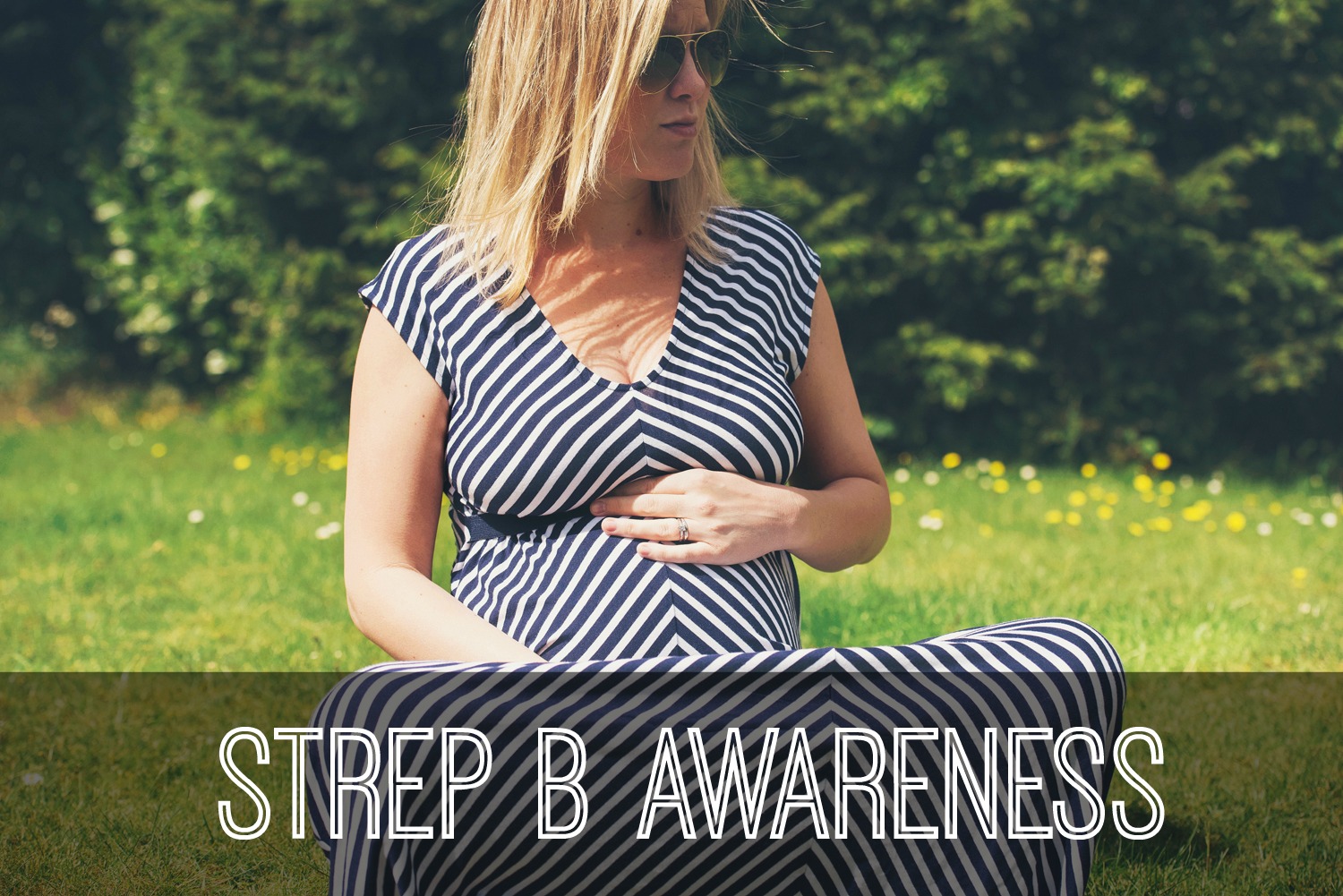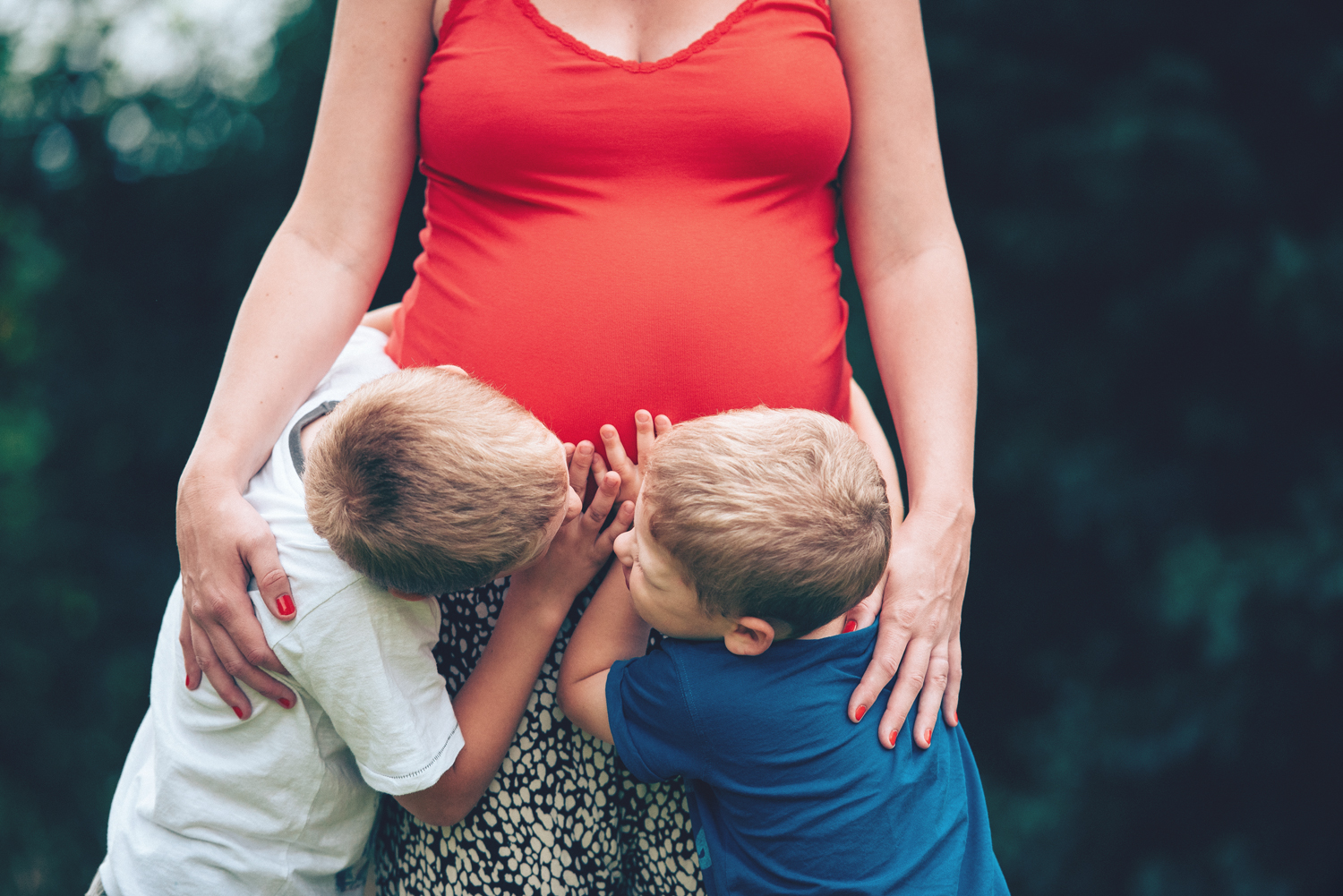When I was 28 weeks pregnant I went along to the midwife for my routine check, where she took a sample of my urine as they normally do. The results weren’t entirely conclusive and a sample was sent to the lab as she felt it may have been contaminated in some way. A few days later I received a call from the doctor querying whether I had symptoms of a urine infection (which I hadn’t really) and that the specimen had come back showing that I had Group Strep B (GBS) present and would need treatment. I remember being a little confused during the brief conversation with the doctor as to what it meant for me and later had to do some research of my own.
I never really knew about GBS before or heard it mentioned by people. As it had never directly affected me I was oblivious and being given a positive result for it made me actually look into what it is. When you do it can be quite worrying and it’s alarming that testing for this infection is not part of the antenatal care routinely offered to women in this country. It is in many other developed countries but not here. So had it not been picked up in my urine sample, then I would have carried on regardless, completely unaware that I could pass this infection on to my baby. I was prescribed a course of antibiotics to clear the infection and I think the usual protocol will be to give me intravenous antibiotics before I deliver my baby. However I need to clarify this with my midwife when I see her next week as to the exact procedure that will be followed with me having an elective caesarean.
In case you’re unaware GBS is bacteria found normally in the intestine, vagina, and rectal area in about 25% of all healthy women. GBS infections can affect both babies and adults and most pregnant women who are colonised by the bacteria have no symptoms. The infection is commonly passed to babies through the birth canal but can also affect unborn babies before delivery.
I took my antibiotics as requested and returned a fresh sample a week after completion of my course, which luckily came back as negative. I’ve since had no further direction from my surgery after ringing up to check the results of the specimen.
Then yesterday, a friend posted a link on Facebook urging people to sign an online petition to the NHS to introduce screening across the country for pregnant women, inline with other countries. I’ve since read that the NHS has deemed the tests to not be reliable and is one of the reasons why they don’t offer the tests as standard – not forgetting the cost which isn’t that much. I remember that my friend had complications after her labour with retained placenta but I hadn’t realised that she had been carrying GBS and it made her quite poorly. Luckily her little boy was fine but she unwittingly gave birth having the infection. Through talking to my friend, we realised that we mutually knew a few women who had been affected and she knew of some very sad outcomes before and after birth.
They say that many babies are unaffected and are born without problems but what’s worrying is the ones that will be infected and treatment will be too late for them. If women are aware they have the infection then they can be treated with intravenous antibiotics when they go into labour and this reduces the risk of transmitting the infection to their babies. It feels very much like russian roulette to me. There are so many factors that we can’t control with having a baby but surely being armed with the knowledge you are a carrier before your baby is born is going to bring down the amount of deaths caused by this infection. Not all can be prevented but many more babies could be saved as result as it’s largely preventable. That statement says a lot. No new parents want to hear the words ‘preventable’ when they lose a child to this or their child has impairments as a result.
New mothers are also not being informed of the warning signs to look out for should their baby fall ill. The infection can still affect babies for a few months after they are born and this is something that I certainly wasn’t told to didn’t look out for with my boys. They are sending babies home that could potentially be at risk and those that are known to be at risk are monitored for longer. I may have had it with both pregnancies but was unaware, of course it doesn’t affect me now but I was completely in the dark and it’s only towards the end of my third pregnancy that I am understanding the implications involved that so many families suffer. I also understand that the bacteria can colonise again even after treatment, so although I may be clear now I might not be by the time I give birth.
“Group B Strep is the UK’s most common cause of severe bacterial infection in newborn babies (usually septicaemia or pneumonia), and of meningitis in babies under 3 months – yet most GBS infection in newborn babies is easily preventable. Finding out whether a Mum is carrying group B Strep late in pregnancy is safe and easy, as is good preventative medicine (simple antibiotics in labour). We need to be doing more in the UK” (Group Strep B Support).
If you want to read up some more on the infection then Group B Strep Support is an independent UK Charity striving to prevent more deaths and complications. It is a great resource to answer the many questions that you may have.
I’ll be going armed with lots of questions to ask my midwife next week for my 34 week check but until then there’s always that underlying niggle that everything is okay.



I had the test routinely with S&H & I’ve said for a while that they should be offered in this country, even if it was on a paid for basis, as I believe it’s only about £18 for the test. You only usually get to hear about it when it’s too late, sadly. I think you will be ok though with a c-section as I think it would only affect the baby if born vaginally.
x
Did you worry when you had Jack? I’m thinking I will be ok as who knows if I was a carrier when I had the boys. The only thing that has made me more aware is the woman who is campaigning to the NHS to provide testing lost her baby via a c-section. I’m assuming it’s far rarer though x
The only reason I found out I had GBS was because I went into hospital because I was bleeding and while being there they did a swab test. Had I not been at the hospital I would not have known. To find out the risks this could have had on my baby had I not found out and not had antibiotics during labour was horrible! There really is not enough info given by midwives, mine certainly never mentioned it. I have signed the petition and shared on all social media because this is something so simple but so important!
Hi Kirsti, thanks for reading. It seems to be the case that people are not being made aware. I spoke to a friend yesterday who is a Health Visitor and even she wasn’t really aware of it and certainly had no information for her patients. It really is time things changed. Glad you managed to get the antibiotics you needed too 🙂